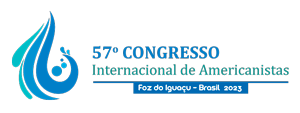| Dados do autor | |
|---|---|
| Nome | Lara-Zuzan Golesorkhi |
| E-mail do autor | Email escondido; Javascript é necessário. |
| Sua instituição | University of Portland |
| Sua titulação | Doutor |
| País de origem do autor | Alemanha |
| Dados co-autor(es) [Máximo de 2 co-autores] | |
| Proposta de Paper | |
| Área Temática | 18. Migraciones |
| Grupo Temático | La participación política de los/las migrantes en América Latina |
| Título | Protection by whom, for whom? Muslim refugee women face a contested European identity |
| Resumo | This paper proposal corresponds to the panel: (Don't) Talk to Strangers: Populism, Policies and Attitudes toward Migration (S. Umpierrez de Reguero and Mari-Liis Jabokson) ‘The European way of life is built around solidarity, peace of mind, and security’ - writes Ursula von der Leyen, President of the European Commission, in her mission statement to Margaritis Shinas, Commission Vice-President for ‘Protecting our European Way of Life.’ Using a ‘protection frame’ to ensure solidarity, peace of mind, and security, follows a simple logic: one needs protection from something. In the case of protecting the European way of life, this something is the non-European migrant or those perceived as such. Non-European migrants (third country nationals - TCNs) pose a threat to Europe and hereby must be securitized. Protection frames have been most notoriously used by right-wing populists to tighten migration control across Europe. This focus on the securitization of migration however comes at the expense of human rights of migrants. The trade-in of human rights for the protection of the European way of life has occurred at border crossings and in host countries, and has left TCNs, especially Muslim refugee women, in a grey area of protection. I argue that the limited protections of Muslim refugee women in host countries can be explained through a combination of the fragmented EU non-discrimination framework and surging nationalist dynamics. By using Germany as my case study and by drawing on empirical data from field research, I propose that Muslim refugee women have been securitized through three distinct, but connected ‘threat logics’: refugees as threat, Muslims and Islam as threat, and Muslim women as threat. All three threat logics have been employed by nationalists to simultaneously target migration and Islam qua Muslim refugee women. |
| Palavras-chave | |
| Palavras-chave |
|
